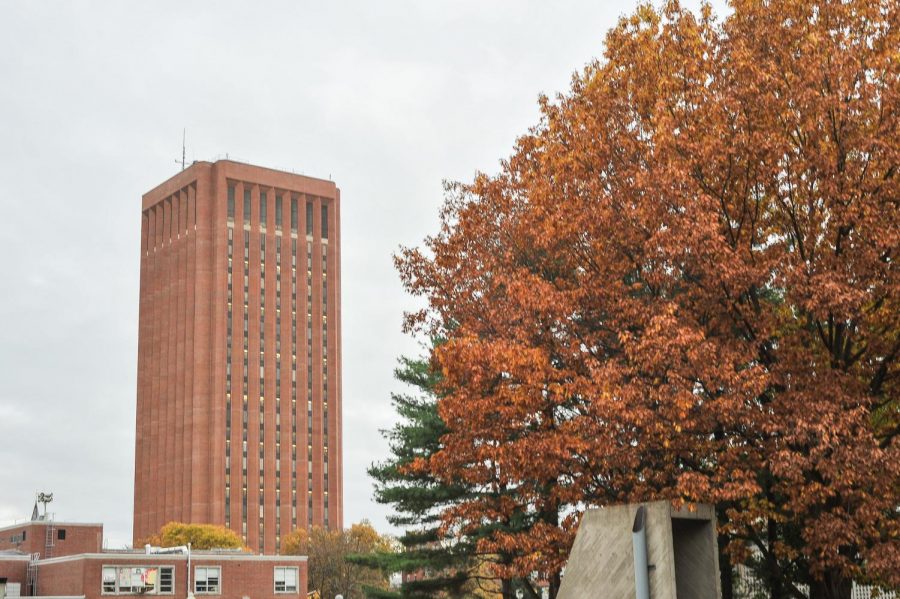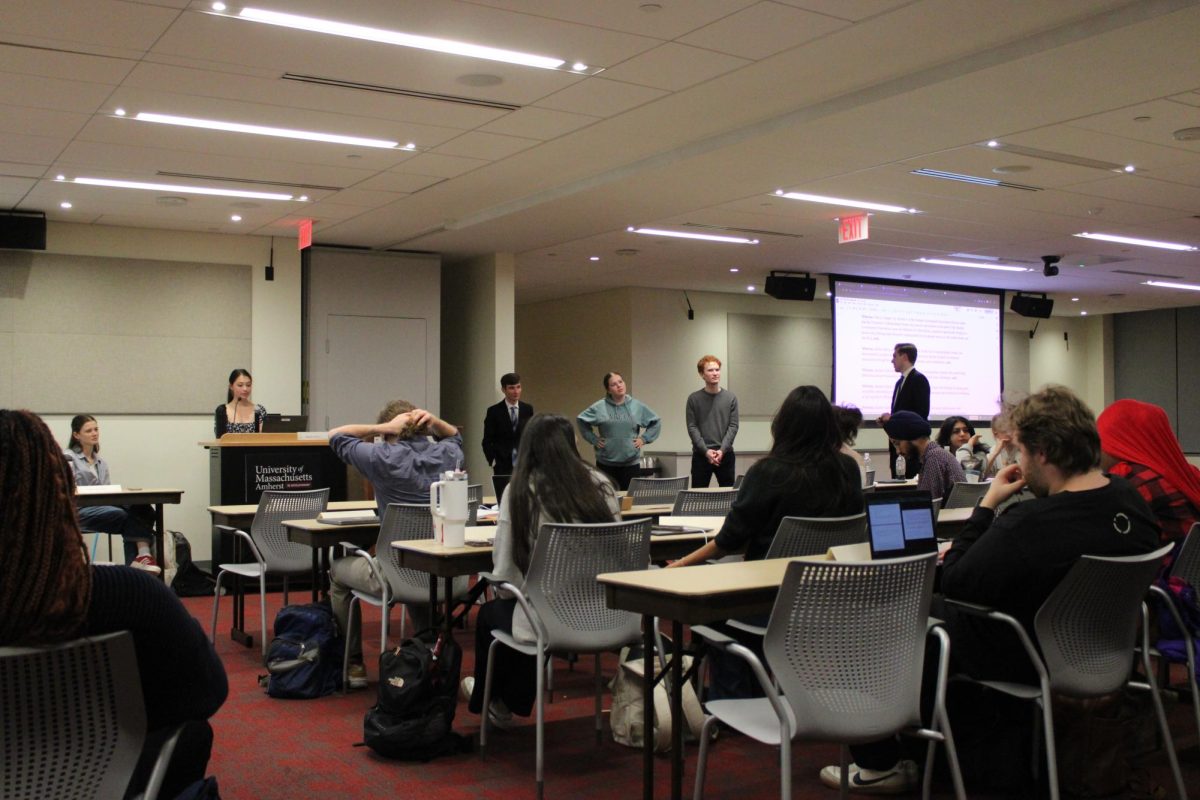Rebecca Spencer is a neuroscientist and lab director at UMass who has conducted groundbreaking work in attempting to uncover the mysteries of sleep. Her studies have been brought into the public eye after being featured on the Netflix series “Babies” and NOVA special “The Mysteries of Sleep.”
She has conducted research focusing on the benefits of sleep and how it influences daytime cognitive functions across development, finding significant evidence demonstrating the role of sleep in maintaining and protecting memories.
Her research on the benefits of naps, or multiple bouts of sleep throughout the day, for infants was recently showcased in the Netflix series “Babies.”
The fifth episode of the series, titled “Sleep,” show’s images across the UMass campus before elaborating on Spencer’s research. Multiple infants are shown toys and how to play with them in the lab, and Spencer proceeds to explain that, “Infants are remembering toys or what they did with those toys if they took a nap.” She also said that brain activity during sleep demonstrates that “memories can be moved out from short term storage…to long term storage.”
The hippocampus, the memory storage area of the brain, is much smaller in infants. “Babies need to sleep in multiple sleep bouts….because they need to take that information that is piled up in their short term storage and move it to its permanent location more frequently than we do,” Spencer said.
Spencer emphasizes a similar conclusion in NOVA’s,“Mysteries of Sleep” and also highlights that the role of sleep in preventing memory from decaying can also extend to the elderly.
A difficulty that scientists and psychologists often face is being able to communicate their research and elucidate their findings to the general public. Although Spencer considers the NOVA feature an incredible feat and “the pinnacle of a scientist’s career” she explains that “people go to NOVA to get science,” however, the Netflix feature is significant in that it may be a vehicle for communicating science to the general public. “We’re taking science to where people aren’t even going for science… we’re reaching people in their living room” Spencer said.
Gina Mason, a postdoctoral research associate at UMass who worked alongside Spencer in the study that was featured in the Netflix series, stated that there must be a delicate balance maintained when communicating science. “It can be difficult for a documentary to capture all the nuances of the basic science and still be accessible for a broad audience,” however, “if a series like ‘Babies’ can inspire parents broadly to learn more about what the scientific evidence says about their child’s development….that is a big accomplishment,” Mason said.
Both Spencer and Mason have contributed substantially to the study of sleep and have plans for the future of their research. Spencer emphasizes that “we need more longitudinal studies” in order to study sleep from a truly developmental perspective and “watch brain development…as well as sleep development…to look at how memory is changing behavior.”
Since the initial filming of the Netflix series, Spencer and Mason have observed that the time of day at which infants nap influences the effectiveness of the naps in protecting memories and hope to further observe the differences between morning and afternoon naps through different ages.
The Netflix series was ranked third in the U.K. and seventh in the U.S. for all Netflix series. Psychological research is extensive at UMass and the achievements and public exposure of Spencer’s work serves as an inspiration for students at UMass on multiple facets.
It inspires students to continue their efforts in the field of psychology and neuroscience, as Molly Solano, a psychology student at UMass, said that the news made her “excited to continue [her] education [at UMass]… knowing that [she] may have opportunities like that in the future.”
It also inspires college students to get to sleep. Spencer hopes that students realize that sleep, something college students tend to neglect, is imperative to their health and academic achievement.
She emphasized that, “sleep is the part of the formula in helping you remember more” and recommended “providing yourself the best opportunity to be able to sleep when you can” which includes keeping screen time before sleeping at a minimum.
Ultimately, the true goal of facilitating such research and communicating it effectively, as Mason hopes, is “to aid the development of sleep and cognitive interventions for at-risk infants and children, and… inform public policies related to subjects such as maternity/paternity leave, recommended nap schedules in daycare centers, and other issues important to infants’ and children’s well-being.”
Saliha Bayrak can be reached at [email protected].





















joey • Mar 5, 2020 at 9:34 pm
Nova is top tier TV! Congrats!